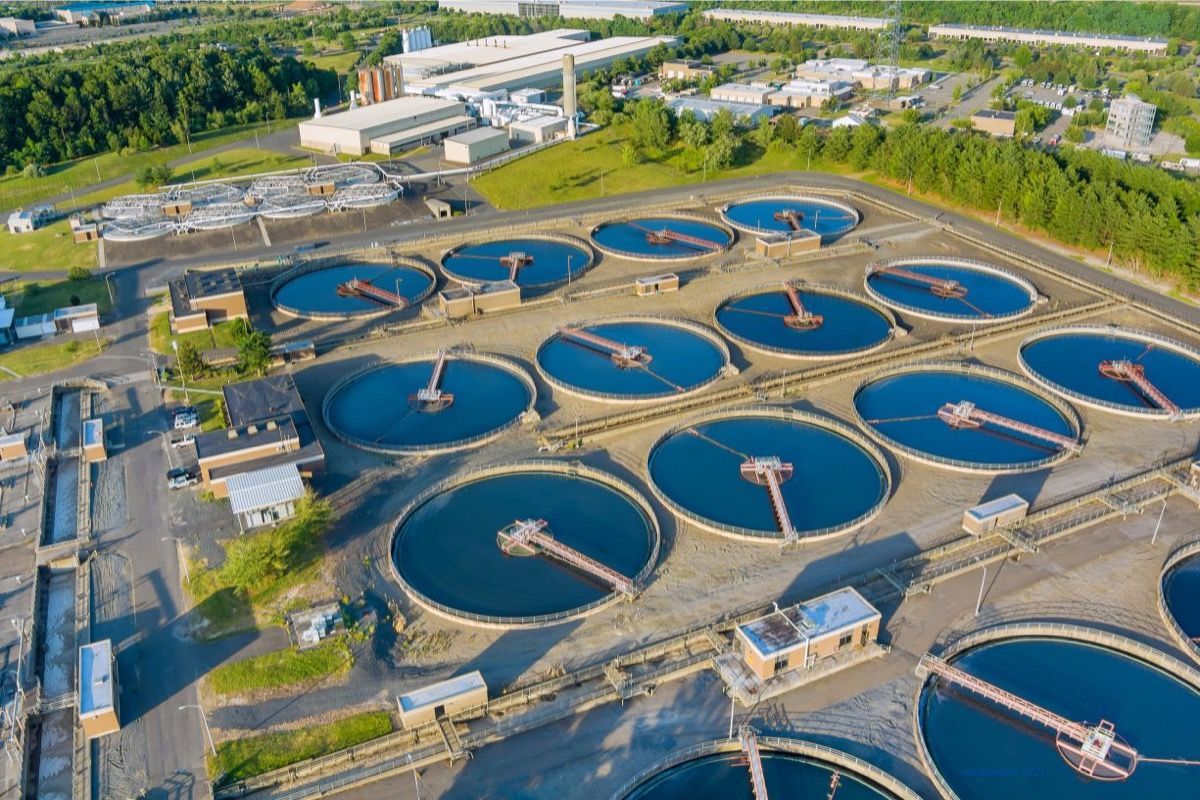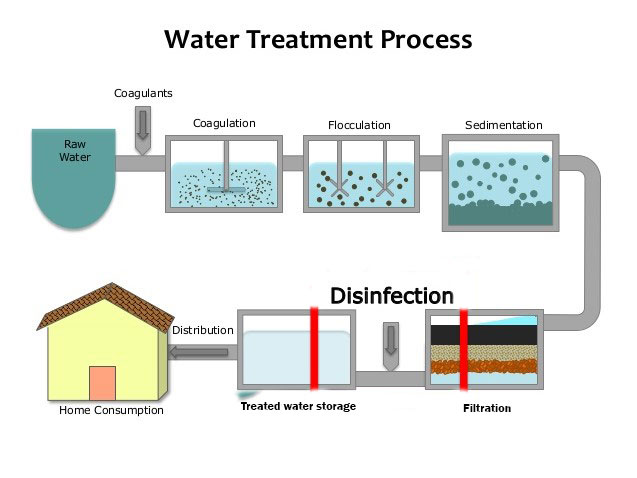Water Technology Startups: Successful Approaches in a Global Market
Discovering Water Technology Startups: How They Revolutionize Lasting Solutions
Water Technology start-ups are becoming crucial gamers in the quest for lasting solutions to international water issues. These firms leverage ingenious modern technologies to enhance water efficiency and administration. Their contributions attend to pushing obstacles such as deficiency and contamination. However, despite their possibility, they deal with different barriers that might influence their success. Recognizing these characteristics clarifies the future of water sustainability and the role these start-ups might play in forming it.
The Value of Water Technology in Today's Globe
As worldwide water deficiency increases, the significance of water Technology ends up being increasingly noticeable. Water Technology plays an important function in addressing the obstacles presented by decreasing freshwater resources and enhancing demand. It includes a broad series of developments, consisting of innovative filtration systems, wastewater treatment modern technologies, and wise watering services. These advancements not just improve the efficiency of water use but likewise advertise lasting methods across various industries, consisting of farming, sector, and city advancement.
Furthermore, the significance of water Technology expands beyond resource management. It cultivates strength against environment modification effects, such as floods and dry spells, by giving adaptive solutions for water preservation and management. In addition, it sustains public health by guaranteeing accessibility to tidy and secure drinking water. As the globe deals with expanding water-related challenges, the integration of advanced water technologies is important for cultivating sustainable advancement and securing water availability for future generations.
Innovative Solutions From Water Technology Startups
While traditional approaches to water management have served their function, a new age of water tech start-ups is transforming the market with ingenious services (Water Technology Startups). These companies utilize sophisticated technologies to resolve pushing water issues, such as scarcity, contamination, and ineffective distribution. Many start-ups use man-made intelligence and artificial intelligence to maximize water use and anticipate demand, leading to more sustainable techniques
In addition, a number of firms concentrate on establishing innovative filtering systems that eliminate pollutants and make water secure for usage. Others check out decentralized water treatment modern technologies, enabling communities to handle their water resources better. Some startups are pioneering smart watering services that lessen water waste in agriculture, advertising ecological preservation.
Instance Researches: Effective Water Technology Startups
Numerous water Technology startups have become leaders in addressing worldwide water obstacles with ingenious methods. One notable example is Xylem, which concentrates on water analytics and smart infrastructure to maximize water use and minimize waste. Their solutions have actually been applied in different districts, showing considerable renovations in water monitoring effectiveness.
An additional effective startup, Absolutely no Mass Water, has created solar-powered hydropanels that remove water vapor from the air, supplying lasting drinking water in deserts. Water Technology Startups. This Technology has actually been released in several countries, making sure areas have accessibility to tidy water
Last But Not Least, AquaVenture Holdings operates a diverse portfolio of water-as-a-service options, dealing with water deficiency with desalination and wastewater therapy. Their jobs have actually confirmed necessary in regions facing severe water scarcities, showcasing the possibility of ingenious water modern technologies to develop enduring, positive impacts. These study highlight the transformative capacity of startups in the water Technology market.
The Role of Smart Technology in Water Management
Smart Technology plays an important role in modern water monitoring by leveraging IoT applications to optimize resource use. Information analytics improves effectiveness by giving workable insights, while remote monitoring options enable real-time oversight of water systems. With each other, these innovations transform how water is taken care of, advertising sustainability and functional effectiveness.
IoT Applications in Water
As water shortage and management difficulties intensify worldwide, the integration of Web of Points (IoT) applications has actually arised as a crucial option in maximizing water sources. IoT Technology facilitates real-time surveillance and analysis of water supply, allowing more effective use and monitoring. Sensing units released in different water facilities can track top quality, circulation prices, and leakage, offering useful data to stakeholders. This data encourages energies and customers to make enlightened decisions, decreasing waste and boosting conservation initiatives. In addition, clever irrigation systems use IoT to enhance water shipment for agriculture, making sure that plants obtain the correct amount of water at the correct time. In general, IoT applications are transforming standard water administration practices, cultivating sustainability and durability in water source systems.
Data Analytics for Efficiency
Taking advantage of information analytics is important for enhancing effectiveness in water management. Water Technology startups are increasingly using sophisticated analytics to optimize source allotment and minimize waste. By examining information from various sources, these startups can identify patterns and patterns that educate far better decision-making. Predictive analytics can anticipate water demand, allowing utilities to adjust supply as necessary, therefore decreasing shortages and surpluses. In addition, real-time information processing enables the immediate detection of leaks and inefficiencies within circulation systems, greatly lowering functional expenses. Data-driven insights encourage stakeholders to apply targeted conservation methods, fostering lasting techniques. Essentially, integrating information analytics into water monitoring not only simplifies procedures but likewise advertises long-lasting sustainability in water resource use.
Remote Tracking Solutions
While traditional water administration systems frequently battle with ineffectiveness, remote monitoring options are changing exactly how water sources are managed. These ingenious technologies allow real-time data collection and evaluation, allowing stakeholders to keep track of water top quality, flow rates, and use patterns from afar. Utilizing sensors and IoT tools, remote monitoring supplies immediate insights that assist in aggressive decision-making. This shift not only improves functional performance yet additionally advertises sustainability by reducing water waste and optimizing resource appropriation. In addition, remote monitoring systems can determine prospective concerns prior to they escalate, thus lessening the threat of contamination or facilities failing. As water Technology start-ups remain to create these solutions, the industry is poised for considerable improvements in lasting water monitoring methods.
Difficulties Encountering Water Technology Startups
Water Technology start-ups run into substantial obstacles that can prevent their development and success. Trick concerns consist of protecting appropriate financing, navigating with complicated governing settings, and completing in a Water Technology Startups jampacked industry. These challenges need calculated planning and development to get over.
Financing and Investment Challenges
Advancement in water Technology holds tremendous possibility for attending to international obstacles, startups in this field usually encounter considerable funding and investment difficulties. Lots of investors continue to be careful, perceiving the water sector as risky as a result of its complicated regulatory landscape and lengthy advancement timelines. In addition, start-ups frequently battle to demonstrate instant productivity, which can prevent potential backers. Typical equity capital may overlook water modern technology, preferring markets with quicker returns, such as tech or durable goods. Furthermore, safeguarding grants and federal government funding can be taxing and competitive, additional making complex monetary security. Water Technology Startups. Because of this, numerous cutting-edge water Technology start-ups locate themselves in a ragged edge, requiring innovative funding approaches to navigate these monetary obstacles and attain their goals
Regulatory Compliance Issues
Guiding governing conformity is a significant challenge for startups in the water Technology market, as they have to grapple with a myriad of regional, nationwide, and global laws. These guidelines frequently include water high quality criteria, ecological defense laws, and safety protocols, which can vary widely across jurisdictions. Startups might discover it tough to browse this complicated landscape, especially when scaling procedures or going into new markets. The prices linked with compliance can be significant, drawing away sources far from advancement and item advancement. Furthermore, delays in obtaining required authorizations or certifications can prevent development and market entrance. A durable understanding of governing frameworks is essential for these startups to ensure sustainable procedures and stay clear of prospective legal repercussions.
Market Competitors Characteristics
As water Technology startups emerge in an affordable landscape, they deal with various challenges that can restrain their development and development. Developed business frequently dominate the market, leveraging sources and experience to maintain their placements. Start-ups battle with minimal financing, which restricts r & d capabilities, making it hard to contend on Technology and pricing. Furthermore, the rapidly advancing nature of water innovations demands consistent adaptation, additional straining start-up resources. Regulative hurdles can make complex market entrance, as conformity with environmental criteria is crucial yet pricey. Drawing in skilled skill in a particular niche area presents one more barrier, as larger companies might supply more attractive work packages. These elements produce a complicated setting for water Technology start-ups intending to do well.
The Future of Water Technology and Sustainability

The future of water Technology will likely concentrate on integrating artificial knowledge and information analytics to enhance water circulation and usage patterns. By utilizing real-time data, firms can forecast shortages and manage resources better. Lasting methods will end up being a keystone of the industry, urging circular economic climates where water is recycled and treated. Eventually, the ongoing evolution of water Technology will be essential in producing durable frameworks capable of satisfying the obstacles positioned by environment adjustment and population development while promoting environmental stewardship.
Regularly Asked Inquiries
What Are the Key Metrics for Examining Water Technology Startups?
Trick metrics for evaluating water Technology startups include market capacity, scalability, consumer acquisition costs, income development, technology development, regulative conformity, environmental effect, affordable benefit, and team experience, all vital for figuring out lasting viability and success.
How Can Individuals Support Water Technology Innovations?
Individuals can support water Technology developments by purchasing startups, promoting for plan adjustments, joining area initiatives, sharing understanding regarding lasting practices, and promoting understanding of water concerns via social media and local events.
What Are Usual Financing Sources for Water Tech Startups?
Typical financing resources for water tech startups include equity capital, federal government gives, crowdfunding platforms, angel investors, and corporate partnerships. These financial opportunities help facilitate development and development in sustainable water management technologies.

Which Industries Benefit A Lot Of From Water Technology Advancements?
Industries such as agriculture, energy, production, and local services benefit considerably from water Technology innovations. These technologies improve water effectiveness, reduce prices, and advertise sustainable practices, inevitably adding to environmental preservation and resource management.
Exist Any Type Of Regulatory Obstacles Certain to Water Technology?
Yes, water Technology encounters regulative challenges, consisting of compliance with ecological requirements, permitting procedures, and varying local regulations. These intricacies can hinder technology and slow down the implementation of brand-new technologies in the water monitoring industry.
Water Technology start-ups are emerging as critical gamers in the quest for lasting solutions to worldwide water issues. As worldwide water deficiency heightens, the relevance of water Technology ends up being significantly obvious. Others discover decentralized water treatment innovations, allowing neighborhoods to handle their water resources much more properly. Another successful start-up, Zero Mass Water, has created solar-powered hydropanels that extract water vapor from the air, supplying lasting drinking water in arid areas. Their tasks have shown crucial in regions dealing with extreme water shortages, showcasing the capacity of cutting-edge water technologies to produce long-term, favorable effects.